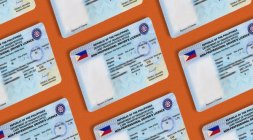All you need to know about LTO penalties for expired car registration: Rates, Schedules and FAQs
Sep 21, 2022
This article will provide you with LTO penalties for expired car registration including rates, schedules and FAQs. Check it now and remember the rates to avoid late registration.
Driving without a valid driver's license or vehicle registration is what no drivers want. However, sometimes, due to some personal reasons, the driver might miss validating one of them. And when that happens, they will always feel anxiety because a police officer will stop them anytime. Are you the same?

Well, this is why it is essential to understand what the law imposes penalties and fines for these violations. Moreover, you can prevent yourself from losing more money than you are supposed to.
LTO Penalties For Expired Car Registration: Rates
Driving with an expired or late car registration can make you face a fine at around Php 2,000 to an enormous Php 10,000, or even worse-getting car impoundment.
In order to avoid these kinds of troubles, the following list will tell you an LTO violation for invalid registration and some associated violations. Here are the latest updates for the fines and penalties by LTO on July 23, 2020. Check it out.
Penalties For Some Serious LTO Violations
Firstly, if you drive with an invalid driving license, for whatever reasons, such as your license is expired, repealed, suspended,..., you will face a fine of 3.000 Php. Furthermore, for those who have unacceptable RC/ class/ fake/ tourist past 90 days or students with no duly driver license, the same 3000-Php penalty will also be imposed on them.
The next violation relates to the driving of MV used in committing a crime convicted by a regular claim court. This kind of violation has to face a fine of 10.000 Php.
Based on the extent of consequences, driving an MV using alcohol or perilous drugs or other addicted substances against regular court regulation will be fined as follow:
If the driver after using these listed substances causes no physical injury or homicide, three months imprisonment and 20,000 Php to 80,000 Php is the punishment the driver gets.
The second case is when the driver does some physical injuries to someone, the driver then will be punished under the Art. 263 of the Revised Penal Code of the Philippines and will get a fine of 100.000 Php to 200.000 Php.
Lastly, in case the driver kills someone accidentally, the Art. 249 of the Revised Penal Code of the Philippines and a fine of 300.000 Php to 500.000 Php will come into play.
Those using alcohol before driving can face drastic penalties.
>>> Read more:
- How to get an international drivers' license in the Philippines: All you need to know
- What Are LTO Traffic Rules And Regulations That Filipinos Commonly Break?

If you drive with an invalid driving license, for whatever reasons, such as your license is expired, repealed, suspended,..., you will face a fine of 3.000 Php
One striking point of this law lies in the classification of the driver’s license. To those who have a non-professional driving license, if the violation is the first offense, a 12-month suspension will be valid right away. In case the second offense happens, the driver may face an all-time revocation.
The drivers with professional driving license shall face perpetual revocation for the first offense and even worse- the disqualification of getting any kind of license for the second offense.
Minor LTO Violations And Penalties
Besides these serious violations, LTO also provides a clear correlation between some minor violations with the fines.
To those who are rash drivers( containing controlling an unregistered MV), 2.000 Php, 3.000 Php, and 10.000 Php fines are valid for the first offense, the second, and the third.
Another minor violation is not wearing a seatbelt( including allowing kids under 6 to sit in the front ). A driver will face 1.000 Php, 2.000Php, and 5.000 Php for the first, the second, and the third offense. Moreover, any drivers who fail to bring their driving license, Certificate of Registration, or other related documents while driving a motor vehicle will face a 1.000 Php penalty.

Besides these serious violations, LTO also provides a clear correlation between some minor violations with the fines
Schedules On New Car Registration
The way LTO divides the time on new car registration depends on the set of numbers on your vehicle’s plate. The following rule will conceptualize how to know when your car is ready to register.
Firstly, the last number on your car’s plate will decide the month you can register. The rule is that the number will represent for the month. For instance, the number 1 represents for January. The other numbers work the same way.
The second rule is about the day in a month you can register for a new car. The second number to the last digit of your car’s plate will help you know the day for registration.
With the numbers 1, 2, 3, the days of registration fall from the 1st to 7th of a month. The plate with 4, 5, and 6 will be on the 8th to the 14th in a month. The days from 15th to 21st are for the number 7 and 8. With the number 9 and 0, 21st to the last day of the month is the time for registration.
For example, if your car plate number is 1346, the last number 6 will tell you that June is the month for registration. The 2nd number, to the last digit-number 6, is number 4, so you can choose any day from the 8th to the 14th of June. Easy, right?
>>> Don't miss this articles: When and how to get your car registration renewal in the Philippines?

The way LTO divides the time on new car registration depends on the set of numbers on your vehicle’s plate
Some FAQs About LTO Vehicle Registration
The following questions are the most-asked when it comes to the topic of LTO penalties and regulations.
1. Can I change my next registration to another LTO branch?
Of course, you can transfer your next registration to other LTO branch. However, remember that you will have to pay 100 Php as you change the venue (COV) of your vehicle registration.
2. Can I change my plate number?
Unluckily, changing your vehicle plate number is not available because as stated in the Batas Pambansa BLG. 43, the numbers and letters of any vehicle plate will be permanent for its lifetime.
3. How much do I have to pay for late registration?
Well, LTO is enacting a fine of 200 Php for late registration weekly. In case the delays happen for months, 50% of MVUC will be a monetary penalty for late registration.
LTO Penalties For Expired Car Registration: Conclusion
Hopefully, this article has provided you with some pieces of information on the penalties for expired or late car registration imposed by LTO. To dig deeper into this topic, you should have a look at The Revised Penal Code of the Philippines where you can learn about other violations and penalties that go with them.
Thanks for reading!
>>> Don't forget to drive safely with our helpful tips and advice for all car owners.
RECENT ARTICLES









